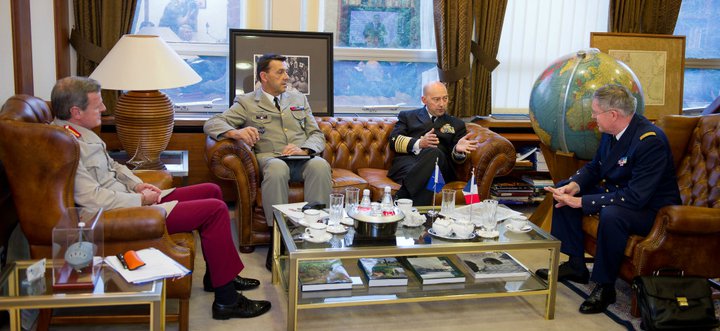Russian conception of the right to self-determination, according to Gorbachev (reading)
 (BRUSSELS2) Gorbachev is undoubtedly one of the greatest leaders of this century. Let's say it bluntly. It is necessary to re-read his preliminary memoirs (editions Odile Jacob, 1993) when he speaks on the right to self-determination.
(BRUSSELS2) Gorbachev is undoubtedly one of the greatest leaders of this century. Let's say it bluntly. It is necessary to re-read his preliminary memoirs (editions Odile Jacob, 1993) when he speaks on the right to self-determination.
"The right of peoples to self-determination is a natural right, recognized by the international community. (…) But, firstly, there are few States and even administered territories in the world which constitute ethnically homogeneous formations. The application by one community of its right to self-determination usually entails an infringement of the analogous right of the other community. Secondly, in cases where the realization of the right to self-determination entails the decomposition of a historically constituted State, when the inheritance comes to be divided, the heirs are faced with, apart from ethnic problems, a whole set of problems that their solution can only in rare cases be painless and harmless. Thirdly, if the processes of delimitation cover important state formations, we are witnessing a destruction of the geopolitical, inter-state balance constituted. (…) It is obvious that the recognition of the right of peoples to self-determination cannot be absolute.”
(NB: Gorbachev is certainly thinking then of the ex-Soviet republics or Yugoslavia, but also of Asia, Africa or Latin America).
"Two forms of implementation of the right of peoples to self-determination are possible:
a) a break with the former state ownership and the separate construction of a community recognized by international law;
b) establishment of federative (or confederative) links with the other ethnic communities inside (or outside) the old state structure. The first way is accompanied by a whole series of painful problems of borders and demarcation of territories. There are very few mono-ethnic territories in the world. This is why the separate state solution will encourage all ethnic minorities to demand the same thing. We see in advance the painful consequences of such a process on international relations as a whole: some States could well be put on notice to disappear altogether. For me it is the federative principle which most reasonably solves the problem of self-determination, in the interest of the nations themselves and in that of a new world order. The question of federalism is, in my opinion, a key question in the current conjuncture. This is of course an authentic federalism which brings together States with equal rights and truly sovereign. The Soviet Union, for example, had a federation in name only and was therefore a place of accumulation of contradictions which could only burst one day. (…)
If a federative solution proves impossible, a separatist model must be envisaged which is neither bloody nor “savage” but admits civilized regulation. Here again, we cannot do without recourse to the code of international law which provides for the conditions for the creation of new state units. It is above all a question of finding an optimal way of honoring both the right of peoples to self-determination and the inviolability of the borders of States recognized by the international community.


